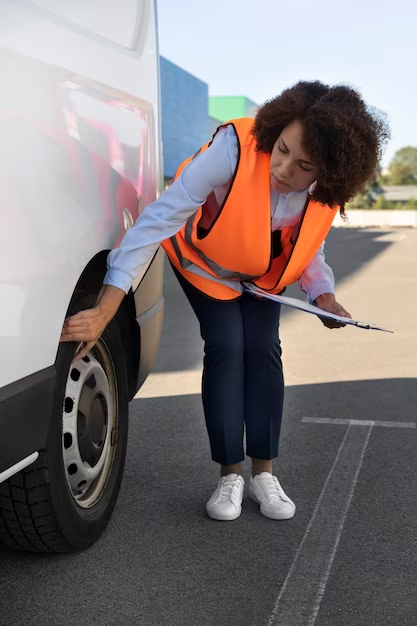Title: Car Insurance Considerations for Commercial and Fleet Vehicles in South Africa
Introduction: Commercial and fleet vehicles play a vital role in businesses across various industries in South Africa. Insuring these vehicles properly is essential to protect the business against potential financial losses due to accidents, damages, or theft. In this article, we will explore important considerations for car insurance when it comes to commercial and fleet vehicles in South Africa, helping businesses make informed decisions to ensure adequate coverage and risk management.
- Understand the Unique Insurance Needs: Commercial and fleet vehicles have different insurance needs compared to personal vehicles. They are often subjected to higher mileage, multiple drivers, and varied usage patterns. Understanding these unique factors is crucial in determining the appropriate insurance coverage for your commercial and fleet vehicles.
- Choose the Right Coverage Types: Evaluate the specific insurance coverage types that suit your commercial and fleet vehicles. Consider options such as commercial auto liability, physical damage coverage, uninsured/underinsured motorist coverage, and comprehensive coverage. Each coverage type addresses different aspects of protection, so assess your needs and consult with an insurance professional to determine the optimal coverage mix.
- Liability Coverage: Liability coverage is critical for commercial and fleet vehicles as it protects your business from potential lawsuits and claims resulting from accidents. Ensure your liability coverage limits are sufficient to cover potential damages and injuries caused by your vehicles. Higher liability limits provide increased protection and minimize your business’s exposure to financial risk.
- Comprehensive Coverage: Comprehensive coverage protects against non-accident-related incidents, including theft, vandalism, or damage caused by natural disasters. Given the higher value and utilization of commercial and fleet vehicles, comprehensive coverage is recommended to safeguard your business against a wide range of potential risks.
- Consider Commercial Auto Umbrella Policy: A commercial auto umbrella policy provides an extra layer of liability protection beyond the limits of your primary commercial auto insurance policy. It offers additional coverage in the event of a catastrophic accident or a lawsuit that exceeds your existing liability limits. Assess your business’s risk exposure and evaluate the need for an umbrella policy to provide increased liability protection.
- Evaluate Driver Qualifications and Training: Insurance providers may inquire about the qualifications and training of drivers operating commercial and fleet vehicles. Ensure that your drivers have valid licenses, clean driving records, and any necessary certifications. Demonstrating responsible driver practices and ongoing driver training programs can potentially lead to lower insurance premiums.
- Implement Fleet Safety Measures: Implementing fleet safety measures is essential to mitigate risks associated with commercial and fleet vehicles. This can include regular vehicle maintenance, driver safety training programs, GPS tracking systems, and dashcams. Insurance providers may offer discounts for implementing these safety measures, as they demonstrate a proactive approach to risk management.
- Assess the Value of Commercial Vehicle Replacement: Consider the value of commercial vehicle replacement in the event of an accident or theft. Determine whether you need coverage for the actual cash value (ACV) or the replacement cost value (RCV) of your vehicles. While ACV coverage pays out the depreciated value, RCV coverage replaces the vehicle with a new one of similar make and model. Assess your budget, vehicle depreciation, and business requirements to make an informed decision.
- Review Policy Exclusions and Conditions: Thoroughly review your commercial and fleet vehicle insurance policy to understand any exclusions, limitations, or specific conditions that may apply. Be aware of any restrictions related to driver qualifications, vehicle usage, geographical boundaries, or other factors. Compliance with these conditions is crucial to maintain coverage and avoid claim denials.
- Regular Policy Review: Regularly review your commercial and fleet vehicle insurance policy to ensure it aligns with your business’s evolving needs. As your fleet grows or changes, update your insurance coverage accordingly. Periodic policy reviews help ensure that you have adequate coverage and identify any potential gaps in protection.
Conclusion: Properly insuring commercial and fleet vehicles is vital for businesses in South Africa. By understanding the unique insurance needs, choosing the right coverage types, assessing liability coverage, considering comprehensive coverage, evaluating the need for a commercial auto umbrella policy, focusing on driver qualifications and training, implementing fleet safety measures, assessing commercial vehicle replacement value, reviewing policy exclusions and conditions, and conducting regular policy reviews, businesses can effectively protect their commercial and fleet vehicles from potential risks. Consult with insurance professionals to tailor your coverage to the specific needs of your business, ensuring comprehensive protection and peace of mind.










